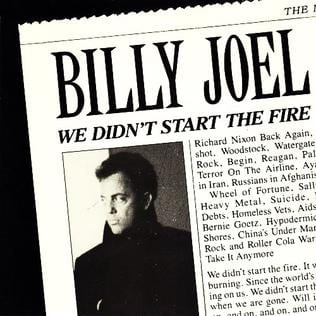Posted on January 31, 2020
The Significance Of Watergate
How do we make choices in what is worth remembering? A question our class has been pondering for quite a while. The significance something has, changes from person to person. Something with great significance reaches a large number of people, is relevant to the past and present, stands the test of time and has profundity. A death can affect somebody deeply (profundity) and can harness a lifetime of sorrow (test of time) but may not necessarily affect a nation or the world.
I find that the most significant events often change a perspective or a worldview, creating lasting effects. That shift in paradigm can make somebody view the world through a new lense until something just as significant changes that lense again. For example, before 500 BC humans believed the earth was flat. Every belief and understanding of the world circled (ha!) around the core concept that the earth was flat. Pythagoras then discovered the earth’s spherical surface, Plato and Aristotle would follow with similar theories. This is a very significant event because it affects all of human civilization (besides a handful of flat earth believers), it has stood the test of time and has deeply affected our understanding of the world. Without this discovery, humans would be hundreds of years behind where we are today. Time is more valuable than anything, showing the significance of this discovery.
I could go on for ages about the importance of Plato, Aristotle, and Pythagoras, but that’s not what I’m here to talk about. Let’s get back to the question…
“How do we make choices in what is worth remembering?”
To sum it up, if it affects a worldview or perspective and creates a shift in a system of understanding, it has lasting effects and is worth remembering.
You’re probably itching to know what’s with all the talk about significance? Well, recently we wrapped up a unit on significant events throughout the 20th century. We kicked off the project by listening to “We Didn’t Start the Fire” by Billy Joel. The lyrics listed approximately 107 events ranging from the early 1900s to the late 1980s that had some sort of significance. Our job was simply to pick an event/person and prove their significance.
To show our research/learning and prove the significance of the event we created an artifact to communicate our findings along with some sort of formal presentation. This process involved lots of research and a deep understanding of our topic.
For my topic I chose Watergate. I was immediately drawn to the topic because there was so much to learn and so many modern-day connections. Before I begin explaining the process, your going to want to get a grasp of what Watergate was. Take a look at the video I made below explaining the event!
So now that you have a good idea of what the scandal was, let’s get started on the presentation/process portion. As soon as we chose our topics we were assigned to do a paragraph simply explaining our event and take on it. What followed this mini assignment was 5-10 pages of research, which included our thesis and evidence explaining why our event was so significant. Normally 5-10 pages of research would stress me out just a little bit, but this time I was quite excited to start. As soon as I got home, I listened to a few hours of the Nixon tapes, visited many websites, listened to speeches and interviews and even began sifting through the documents from the trials. Once I compiled all my research together I came up with a driving question…
“How has Watergate affected the 2019 Impeachment Trials?”
I then began coming up with my thesis to my question as well as 3 pieces of key evidence. I found this very difficult because there was just so much information, theories, and connections. I came to the following conclusions:
THESIS
The Watergate scandal has very clearly had a ripple effect on the 2019 Impeachment trials, specifically political reform, and journalism.
EVIDENCE
- The Court’s curb on executive power remains crucial today, they proved that not even the president is above the law. This has affected today’s impeachment trials.
- Lawyers and Attorneys for the first time were viewed in a negative way. Most law schools after the scandal implemented an ethics course, and the bar rewrote its responsibility code.
- Carl Bernstein and Bob Woodward (journalists at Washington Post covering scandal), created what became known as the culture of celebrity journalists.
Once I had my information, thesis and evidence laid out it was pretty simple to create a keynote along with my script. The hard part for me was shortening it, I didn’t mention this before but we only had 5 minutes! It seems like a long time until you have to explain the significance of one of the biggest political scandals of all time. I was sitting in front of my iPad for hours trying to cut down the script. Everything just seemed so important to include! After a while, I was able to cut it down to 5 minutes, which would give me 1 minute to also show the video compilation I made of the Nixon tapes. Below is my Keynote deck as well as my video compilation.
CLICK HERE FOR THE SLIDE DECK!
As I mentioned before we also had to have an artifact along with our project to communicate our learning. When I began researching the scandal along with the 2019 Impeachment Trials I came across hundreds of original transcripts and documents. I grew more and more interested in these documents, in particular, the recent transcripts of the call between Zelenskyy and Trump.
Although I was completely in awe by these documents I knew not everybody would be. Saying this, I came up with the idea to create a lesson plan to show the significance of Watergate as well as try to get people to see those documents/transcripts through my eyes. This was my artifact I would be using to communicate my learning to the class. Throughout this project I discovered that I communicate my ideas through teaching and sharing my love for different topics with other people. I find that whatever platform or format I’m communicating in whether it be presenting, writing or speaking I always share my ideas that I am passionate about. This is very similar to the way I presented my project, I chose to do this lesson plan because I love “teaching” people about things I am passionate about (in this case Watergate). This is another reason why I think this project went well, because communicating things I am passionate about just comes naturally.
Click here for my Lesson Plan!
I find I’m always drawn to creating more physical things so I ended up printing out those transcripts and ‘decoding’ them. As I presented my Keynote I passed around those marked-up documents so people could physically see and hold a historical artifact as I was explaining the importance of them.
Click here for the marked up documents!
On presentation day, I was pretty nervous just because I knew I would explain things too much than run out of time. Even though I had practiced multiple times under 5 minutes, I had so many other things to share. Overall, I felt like I did a pretty good job, I ended up taking 6.05 mins. If I could do it again I would try to speak slower and take my time on each topic. I felt like I maintained a pretty good tone and my Keynote helped get my point across and engage the class.
This project was so much fun for me, like I mentioned before, it didn’t feel like work. I was able to put my twist on the project by sharing my ideas through building artifacts, researching and presenting. Overall, I enjoyed this project and the accomplishments I made.






